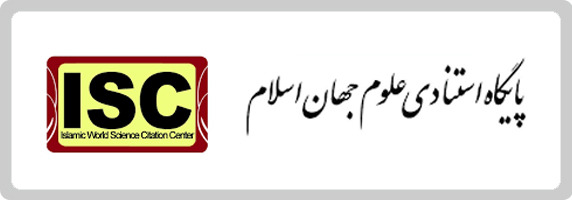بررسی رابطه ناگویی هیجانی و طرحوارههای ناسازگار اولیه با تعارض زناشویی در دانشجویان زن متاهل
کلمات کلیدی:
ناگویی هیجانی, طرحواره های ناسازگار اولیه, تعارض زناشویی, دانشجویانچکیده
پژوهش حاضر با هدف برسی رابطه ناگویی هیجانی و طرحوارههای ناسازگار اولیه با تعارض زناشویی در دانشجویان زن متاهل، انجام گرفت. پژوهش توصیفی از نوع همبستگی بوده و جامعه آماری پژوهش شامل کلیه دانشجویان زن متاهل دانشگاه آزاد اسلامی واحد رشت در سال تحصیلی 1402-1403 بود. حجم نمونه 134 نفر برآورد گردید که به روش نمونه گیری در دسترس بعنوان نمونه آماری انتخاب شدند. در این پژوهش ابزار استفاده شده عبارت بودند از: پرسشنامه ناگویی هیجانی تورنتو (1994)، نسخه کوتاه پرسشنامه طرحواره یانگ (1995)، پرسشنامه تعارضهاي زناشویی براتی و ثنایی(1375). تجزیه و تحلیل دادهها با استفاده از ضزیب همبستگی پیرسون و همچنین رگرسیون گام به گام و با کمک نرم افزار spss 26 انجام گردید. نتایج حاصل نشان داد که بین ناگویی هیجانی و طرحواره¬های ناسازگار اولیه با تعارضات زناشویی رابطه مثبت معنی¬دار وجود دارد و طرحوارههای بريدگي وطرد، محدوديت مختل و ديگرجهت مندي نقش معنی¬داری در پیش بینی تعارضات زناشويي دارند و طرح واره بريدگي وطرد بيشترين سهم را در پيش بيني تعارضات زناشويي دارد.
دانلودها
مراجع
Adlparvar, I., Safaie Rad, I., Irfani, N., & Jadidi, H. (2022). Modeling marital conflicts based on attachment styles: The mediating role of early maladaptive schema domains in women on the brink of divorce. Journal of the Faculty of Medicine Mashhad, 65(1), 203-217. https://www.sid.ir/paper/1121430/en
Apostolou, M., & Panayiotou, R. (2019). The reasons that prevent people from cheating on their partners: An evolutionary account of the propensity not to cheat. Personality and individual differences, 146, 34-40. https://doi.org/10.1016/j.paid.2019.03.041
Aryanfar, N., & Poorshehriyari, M. S. (2017). Structural equation model predicting marital conflicts based on early maladaptive schemas in the domains of abandonment and rejection, with the mediating variable of love styles. Journal of Counseling and Psychotherapy Culture, 8(29), 107-134. https://www.sid.ir/paper/213965/fa
Asadzadeh, A., Habibi, M. B., Zareh Bahram Abadi, M., & Farhangi, A. (2021). Modeling personality traits and marital conflicts with the mediating role of emotional granularity. Women and Family Studies, 14(54), 7-32. https://journals.iau.ir/article_681472.html
Besharat, M. A. (2009). Attachment styles and emotional dysregulation. Journal of Psychological Researches, 12(4), 63-80. https://sid.ir/paper/66289/fa
Edwards, E. R., & Wupperman, P. (2017). Emotion regulation mediates effects of alexithymia and emotion differentiation on impulsive aggressive behavior. Deviant Behavior, 38(10), 1160-1171. https://doi.org/10.1080/01639625.2016.1241066
Frye, N., Ganong, L., Jensen, T., & Coleman, M. (2020). A Dyadic Analysis of Emotion Regulation as a Moderator of Associations Between Marital Conflict and Marital Satisfaction Among Firstmarried and Remarried Couples. Journal of Family Issues. https://doi.org/10.1177/0192513X20935504
Hashemi Pour, F., Yarahlohi, N., Soleimani, H., & Roozban, S. (2022). The role of emotional granularity, cognitive flexibility, and fear of intimacy in predicting marital conflicts among nurses. Nursing Management Journal, 11(2), 53-63. https://ijnv.ir/article-1-940-fa.html
Jarvis, M. A., Padmanabhanunni, A., & Chipps, J. (2019). An evaluation of a low-intensity cognitive behavioral therapy mHealth-supported intervention to reduce loneliness in older people. International journal of environmental research and public health, 16(7), 1305. https://doi.org/10.3390/ijerph16071305
Kalantari, S., Malekian, M., & Ghalavand, F. (2022). Investigating the relationship between marital conflicts, fear of intimacy, and emotional granularity in women affected by marital infidelity. Seventh International Conference on Psychology, Educational Sciences, and Child Rights in the Islamic World, Tehran.
Kinnaird, E., Stewart, C., & Tchanturia, K. (2019). Investigating alexithymia in autism- A systematic review and meta-analysis. European Psychiatry, 55, 80-89. https://doi.org/10.1016/j.eurpsy.2018.09.004
Kover, L., Szollosi, G. J., Frecska, E., Bugan, A., Berecz, R., & Egerhazi, A. (2024). The association between early maladaptive schemas and romantic relationship satisfaction. Frontiers in psychology, 15, 1460723. https://doi.org/10.3389/fpsyg.2024.1460723
Mahapatra, A., & Sharma, P. (2018). Association of Internet addiction and alexithymia-A scoping review. Addictive behaviors, 1(81), 175-182. https://doi.org/10.1016/j.addbeh.2018.02.004
Moradi Davijani, H., Karami, J., & Yazdanbakhsh, K. (2024). The mediating role of self-compassion in the relationship between early maladaptive schemas and marital conflict. Family Research, 20(2), 23-46. https://jfr.sbu.ac.ir/article_105060.html
Stamps, J. A., & Metcalf, R. A. (2019). Parent-offspring conflict. Routledge. https://www.taylorfrancis.com/chapters/edit/10.4324/9780429306587-23/parent-offspring-conflict-judy-stamps-robert-metcalf
Uhlich, M., Nouri, N., Jensen, R., Meuwly, N., & Schoebi, D. (2022). Associations of conflict frequency and sexual satisfaction with weekly relationship satisfaction in Iranian couples. Journal of Family Psychology, 36(1), 140. https://doi.org/10.1037/fam0000878
Young, J. E. (1998). Young Schema Questionnaire: Short Form. Cognitive Therapy Center. https://doi.org/10.1037/t12644-000
Young, J. E., Kolsko, J., & Wisshar, M. E. (2003). Schema therapy: A practitioner's guide. Guilford. https://www.guilford.com/books/Schema-Therapy/Young-Klosko-Weishaar/9781593853723?srsltid=AfmBOoo_OZ9MgrR0ruxGP-BOV9R8NF9_7oNOdwxmNnVO2PV1ch-pBmJj
دانلود
چاپ شده
ارسال
بازنگری
پذیرش
شماره
نوع مقاله
مجوز
حق نشر 2024 سمیه علیز اده (نویسنده مسئول); ریحانه آریان, ساره مرادی (نویسنده)

این پروژه تحت مجوز بین المللی Creative Commons Attribution-NonCommercial 4.0 می باشد.







